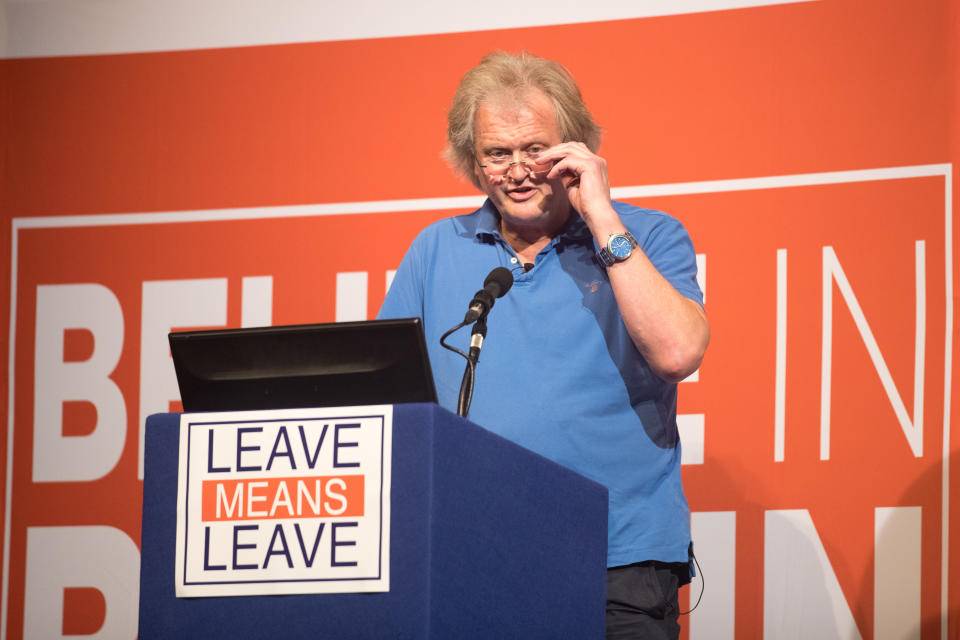Brexit-backing Wetherspoon founder Tim Martin slams 'quasi-religion' of Remainers

Wetherspoon founder Tim Martin is on a cross-country tour of his pubs to promote his ideas about Brexit, saying he felt compelled to leave London for his two-month tour as he worries that pro-Brexit voices are being censored and ignored.
Supporting the European Union is “almost a quasi-religion” for some people, he told Yahoo Finance UK in a phone interview outside Leeds. “It’s quite difficult to get my message across.”
Martin has developed a reputation for his staunchly pro-Brexit stance and is one of a small number of high-profile businesspeople in the UK who have publicly supported Brexit, alongside James Dyson, the billionaire founder of the engineering firm Dyson.
“Why don’t more people speak out? Hard to say. Hard to say. It’s quite difficult to speak out… it’s almost socially unacceptable in many social circles,” said Martin.
His pub chain JD Wetherspoon (JDW.L), which Martin launched in 1979, has altered some of its business practices in recent months to promote Martin’s pro-Brexit message.
It moved to phase out popular European drinks from its menu, including German spirit Jagermeister, in favour of British and non-EU beverages. It has also printed pro-Brexit beer mats for its nearly 900 pubs.
Martin said he favours the UK leaving the EU in March with no political deal and no transition plan. He expects that the default of moving to World Trade Organization (WTO) trading rules would be optimal, and then he wants the country to abolish all its trade tariffs.
“Trading under World Trade Organization rules is a successful way to trade,” he said, noting that the UK trades with the US and China under these WTO rules without a problem.
But many economic and trade experts have warned about risks associated with leaving the EU without a deal, along with difficulties in lowering tariffs to zero.
RELATED: What is a no-deal Brexit? The key things you need to know
The Bank of England warned last week that the UK could be headed for an economic shock in 2019 that could be more severe than the global financial crisis if the country leaves the EU without a deal and transition period.
The UK’s central bank said that in its worst-case Brexit scenario, the UK economy could shrink by about 8% within a year. That fall would be the worst the country has seen since the 1920s.
Meanwhile, lowering tariffs to zero could be a risky move.
“Abolishing tariffs across the board is a policy that nobody in government seems to advocate given the consequences of such an approach for the UK’s farm[s] and industry,” said Holger Hestermeyer, a lawyer and academic specialising in world trade and international law at King’s College London.
Tariffs around the world are near their lowest levels ever — averaging around 2.9% — according to recent data from the World Bank. The UK’s average tariff rate applied to all imports in 2016 worked out to 2%. However, agricultural tariffs around the world tend to stay high because countries use them to protect their farmers.
Brexit is set to happen in late March after a 2016 referendum showed 52% of people voted to leave the EU. But the votes were not evenly distributed, with a majority of voters in London, Scotland, Northern Ireland and Gibraltar wanting to remain in the European Union. In total, 33.5 million people voted in the referendum.

 Yahoo Finance
Yahoo Finance 